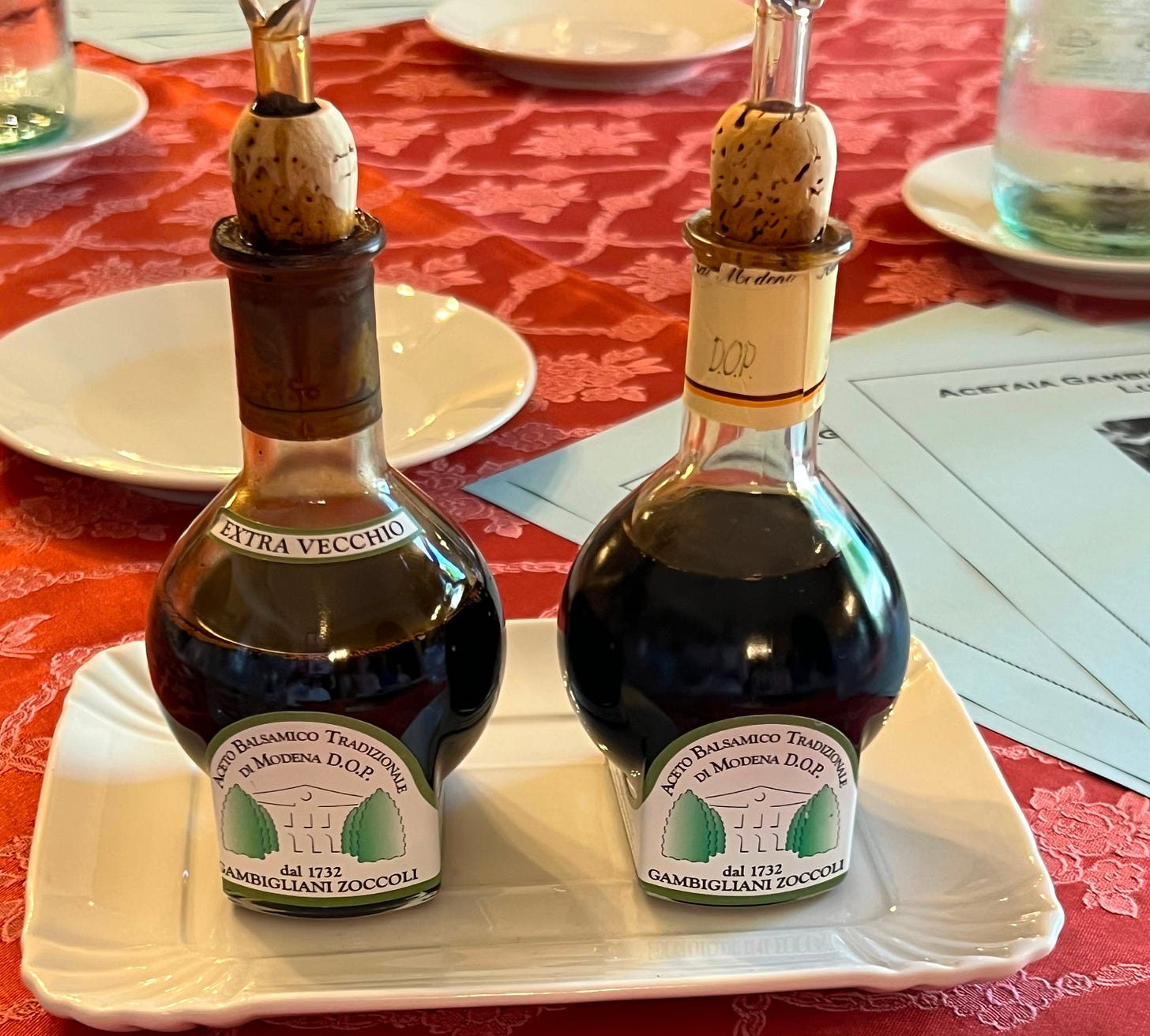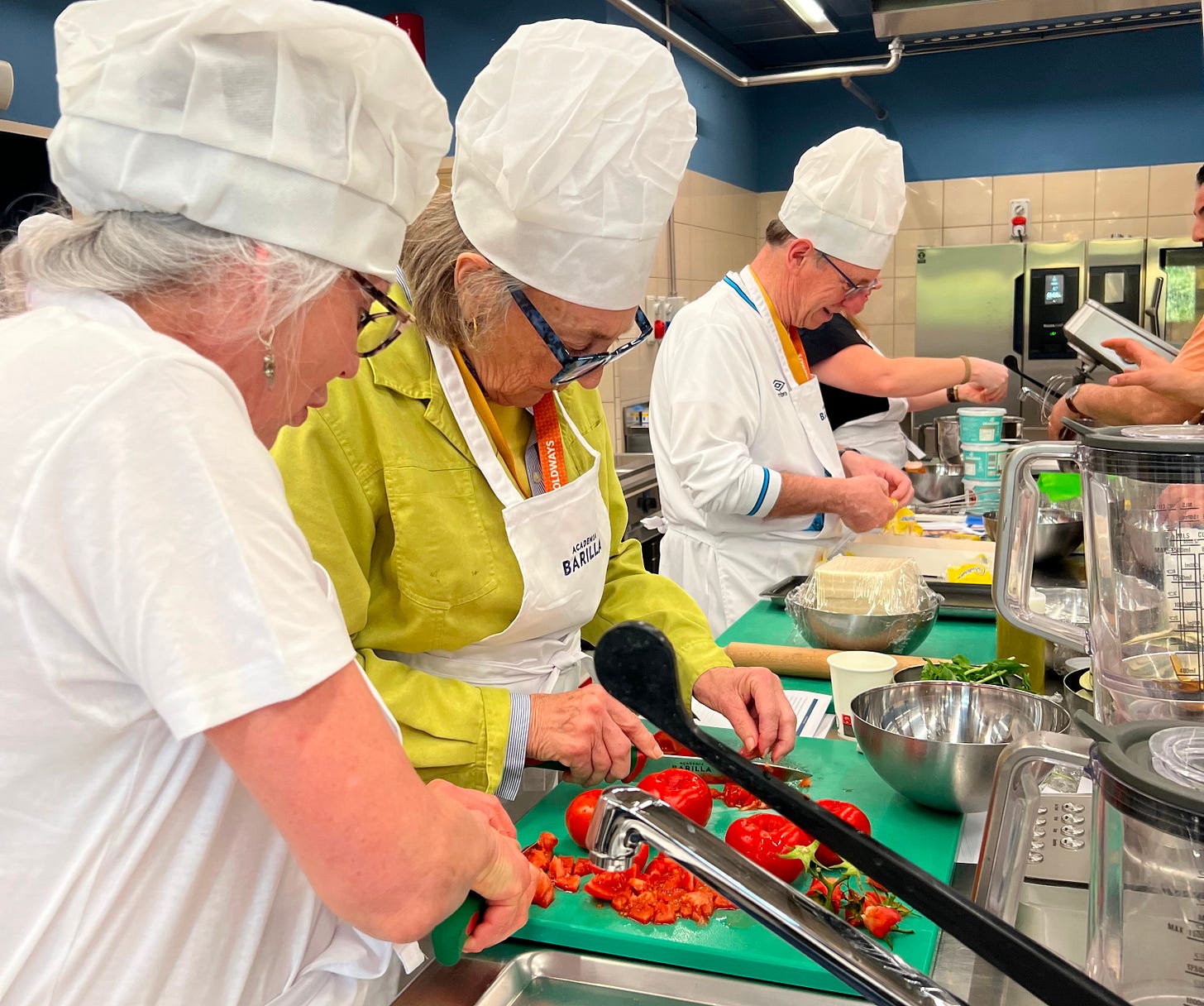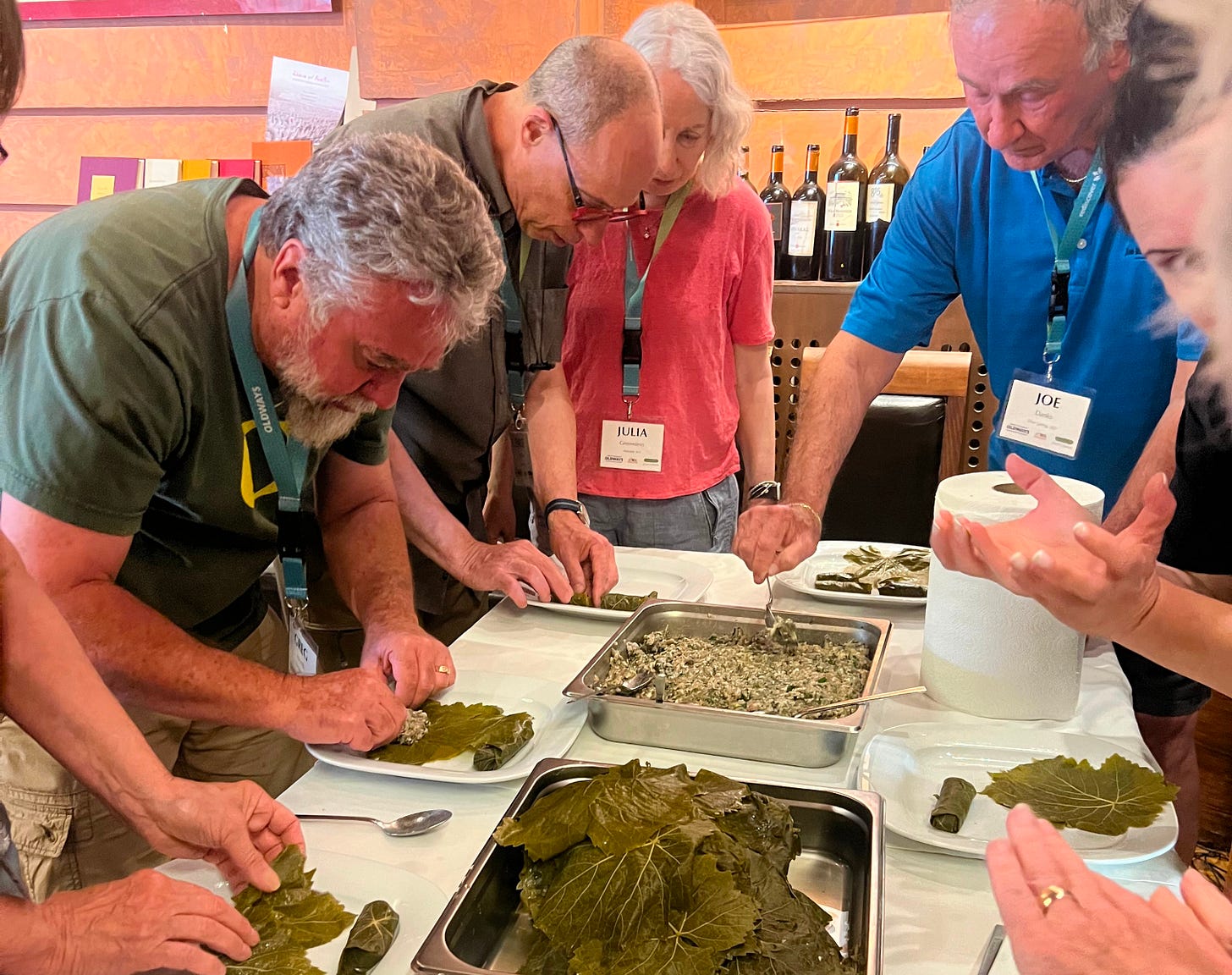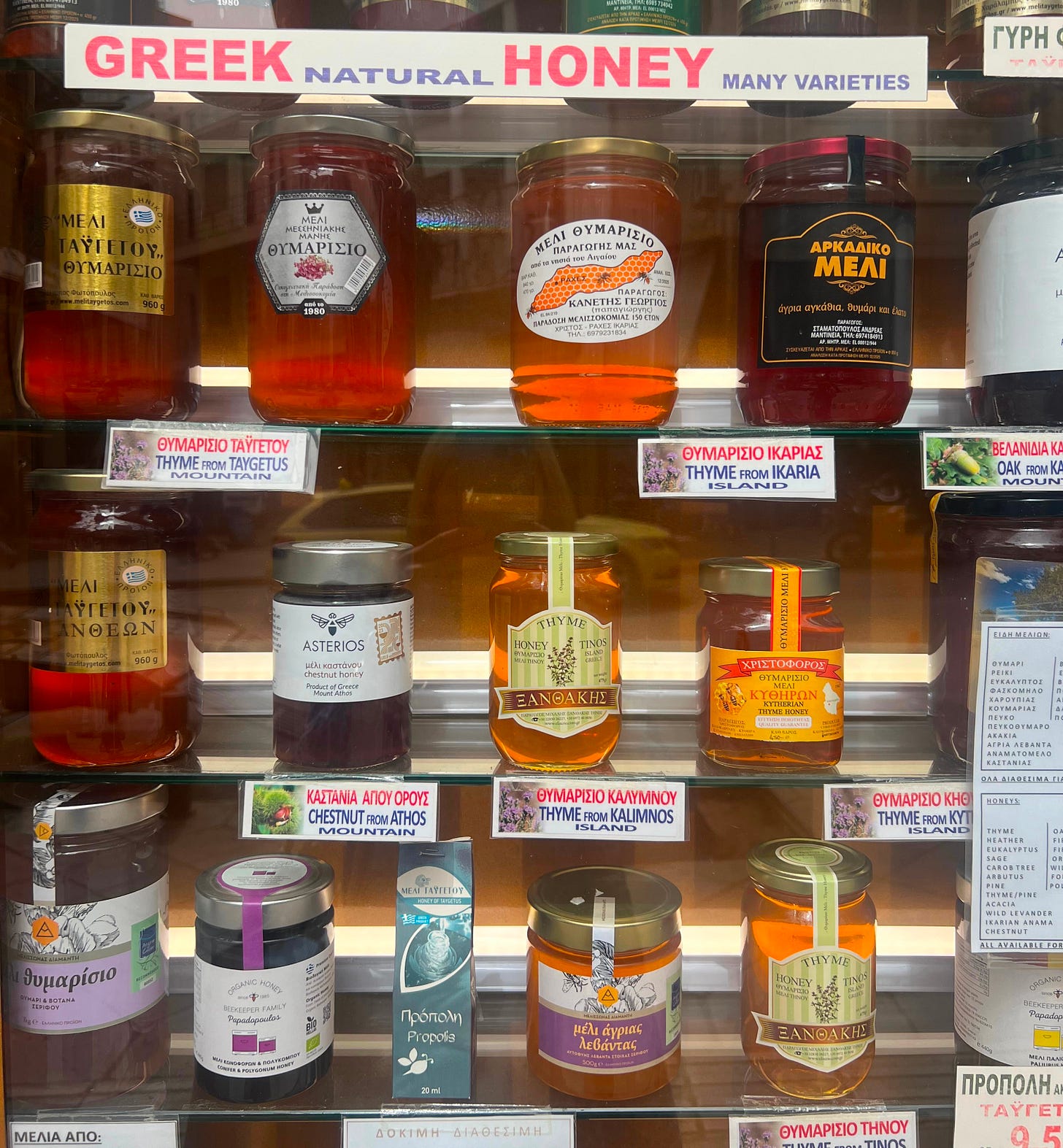Why Culinary Tourism Matters
When Oldways created the Mediterranean Diet Pyramid with the Harvard School of Public Health in 1993, olive oil was not a mainstream product, sold mainly in ethnic shops and a few grocery stores. Our challenge to bring olive oil and the Mediterranean Diet to American consumers was magnified by the fact that our government’s dietary guidelines advised people to avoid all kinds of fat — including olive oil.
How could we make the Mediterranean Diet Pyramid jump off the page and enter the hearts and minds of Americans? We took a giant leap of faith and decided to organize a series of culinary and cultural symposiums in Mediterranean countries.
We raised funds from the International Olive Oil Council, regional governments and chambers of commerce, as well as ministries of agriculture, culture, and tourism of countries around the Mediterranean to bring journalists, chefs, cookbook authors, food retailers, and scientists to different countries for week-long symposiums. To educate Americans about the Mediterranean Diet and olive oil, we looked for journalists to write stories in newspapers and magazines; chefs to add new dishes to their menus and put olive oil on their tables; cookbook authors to create a wide variety of new cookbooks; food retailers to put olive oil and other Mediterranean products on their store shelves; and scientists to research and publicize the benefits of the healthy and incredibly delicious Mediterranean Diet.
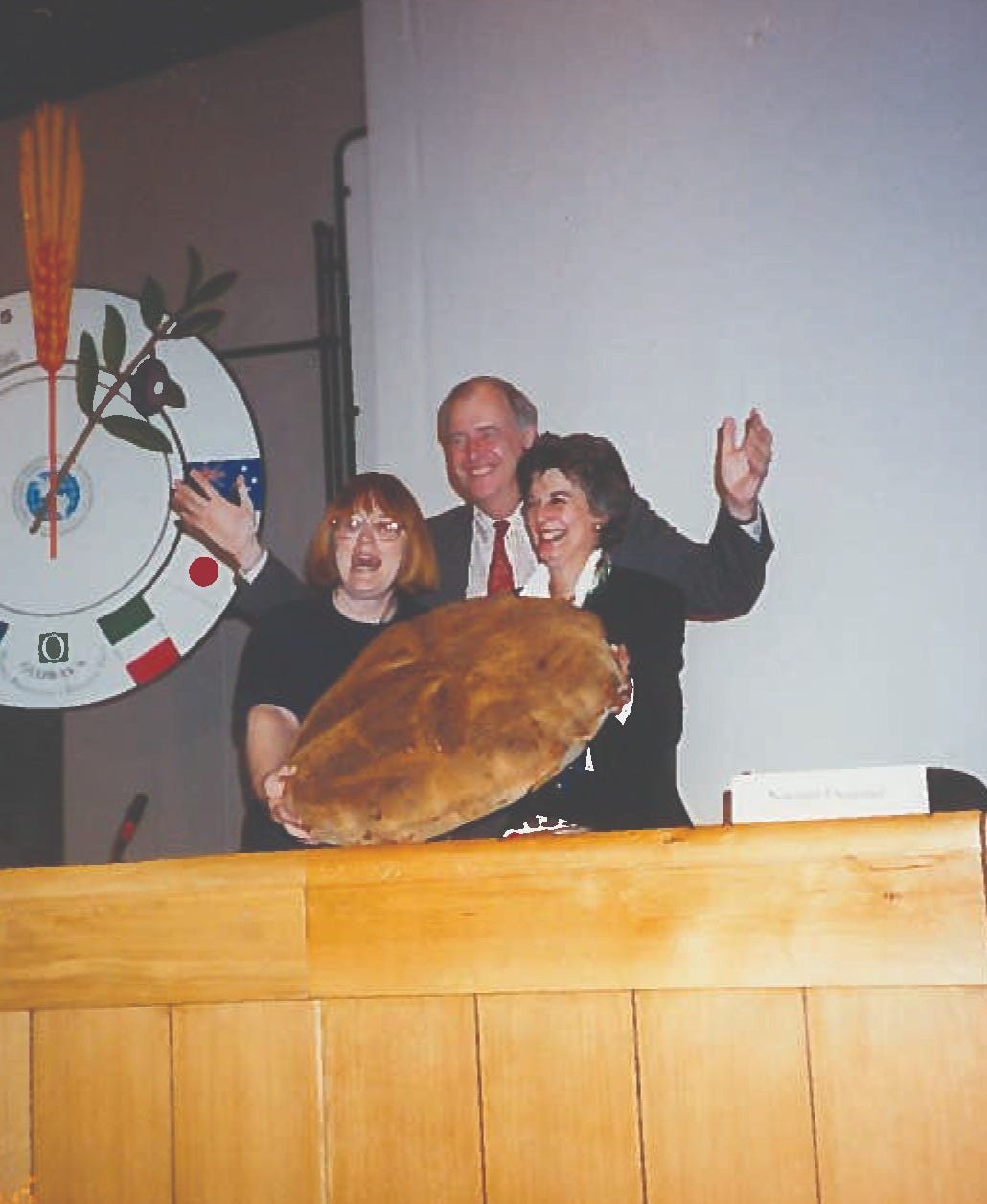
Soon, our original challenge was transformed into a new problem: how to make room for everyone who wanted to participate. These trips were highly sought after. Writers, retailers and chefs didn’t want to “fall off our list.” The people who attended still talk fondly and wistfully about them — and still use what they learned in their work. These trips were exciting times at Oldways, but they were also challenging! Getting 100 people to faraway places like Casablanca, Tunis, Istanbul, Crete, and Puglia (among others) was no easy feat, and managing all of them was also a challenge, though a very happy one.
We continue to believe in the importance of culinary travel, but now our trips are open to the public, giving everyone a chance to take part. Oldways Culinarias are extraordinary culinary tours, planned with our firm belief that the heart of any culture can be illuminated by exploring its food, wine, and culinary traditions.
In our ever-changing, complicated world, there is great value in experiencing, understanding, and embracing other cultures, and the prism of food is one of the best ways to do so. This is one reason culinary travel is important and can make a difference in how individuals see things.
Culinary travel in other cultures is also important in recognizing, supporting and honoring those who spend their lives and make their livelihoods producing and showcasing traditional products. Joining any Culinaria supports the local communities we visit during the trip.
Oldways has another reason to believe in the power of culinary tourism: health. With our mission of “helping people live healthier, happier lives through cultural food traditions,” culinary travel is an effective cog in the wheel. Participants learn how traditional products are made and how they combine to make healthy, traditional dishes and meals.
To illustrate this point, let me describe two Culinarias — our most recent trips to Parma and Emilia Romagna, and the Peloponnese in Greece.
In April 2024, Oldways and 25 lucky travelers experienced the culinary traditions of Emilia Romagna — considered by Italians to be the “food region of Italy” — with Chef Michael Lombardi of SRV restaurant. In Parma, we visited the Serra family and their Parmigiano Reggiano dairy, Valserena, learning how this most magical cheese is made — the same way it’s been made for years. Giuseppe Serra is a cheesemaker, and his sister Antonetta is a veterinarian who takes care of the very special brown cows who produce the milk for Valserena’s Parmigiano Reggiano. Now, Giuseppe’s son, Gian Domenico, is taking the reins at Valserena.
At Acetaia Gambigliano Zoccoli in Modena, we learned how true, thick, traditional balsamic vinegar (Aceto Balsamico Tradizionale) is produced, aging in a series of five barrels made of five different kinds of wood. At Leporati, a third-generation prosciutto house in Langhirano, we learned about the production process from start to finish: selection and salting, maturation, dry-curing for at least 16-18 months.
And best of all, we cooked. Chef Lombardi created a dinner menu featuring all local ingredients and then showed us how to make everything at home. We each had a turn at the stove while producing dinner for the group. Cooking is important to us at Oldways and is an essential ingredient to making the world a healthier place. We want everyone to be excited to try these wonderful ingredients and want to use them because they taste good — and also happen to produce healthy dishes.
We followed up the Parma Culinaria with one in Greece, in the Peloponnese and Athens with Chefs Michael Costa of the Jose Andres Group, Cassie Piuma of Sarma in Somerville, MA, and Aglaia Kremezi and Costas Moraitis of Kea Artisanal.

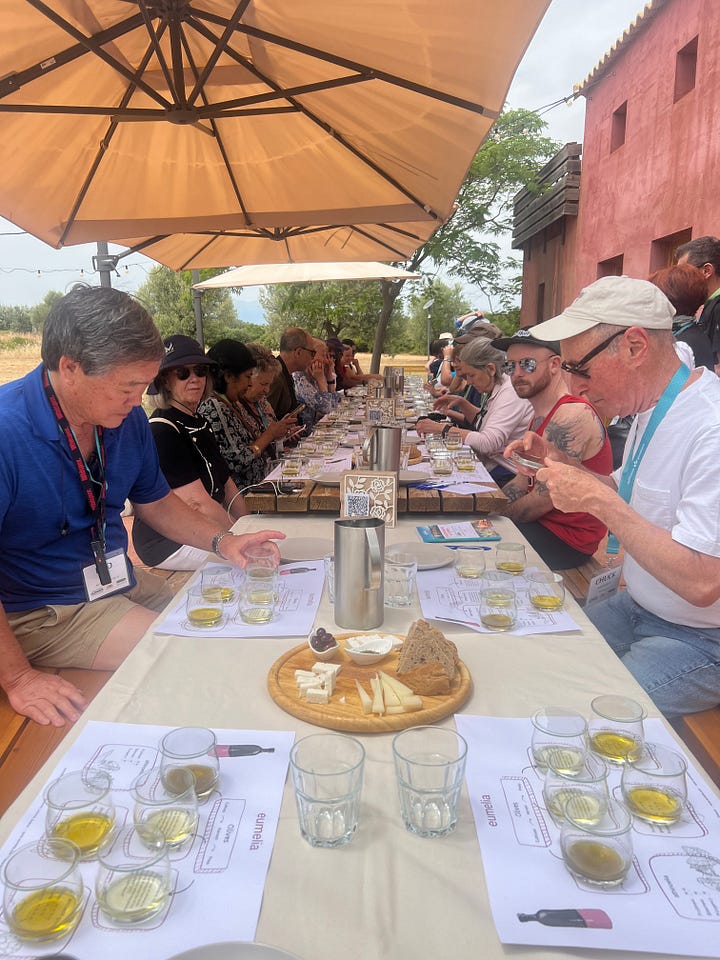
Both chefs Cassie and Michael dazzled us with cooking lessons — Cassie at Savor Nafplion, a cooking school in Nafplion, and Michael at Eumelia, an organic agrotourism farm. While we were at Eumelia, we all got a chance to roll phyllo, taught by Marilena of Eumelia, and Frangisko led us in an innovative olive oil tasting. In addition, we learned how to make the classic dolmas at Sofos restaurant in Nemea.
We visited producers of olive oil and wine, visited museums and ancient sites (the Acropolis in Athens, Epidaurus near Nafplio, and the Byzantine site Mystras near Sparta), and experienced Athens through two walking tours. One was a night stroll, trying small plates and different drinks, and the second was a daytime adventure through Athens, visiting stores and shops and restaurants selling traditional ingredients and food.
Since we’ve been back (for four months now), I’ve had the pleasure of enjoying lunch or dinner with eight of the attendees from the Peloponnese-Athens Culinaria and have been so pleased to have been shown photos of dinner parties they had that featured dishes from the Culinaria cooking classes.
That’s one of our goals. We are passionate about bringing back ideas and inspiration for great taste and good health, along with a greater understanding of life in a place other than our home. Plus, the importance of the table and the joys of sharing meals with one another!
We hope you’ll join us on a trip soon. Learn more about our upcoming Oldways Culinarias.
Sara Baer-Sinnott, President








